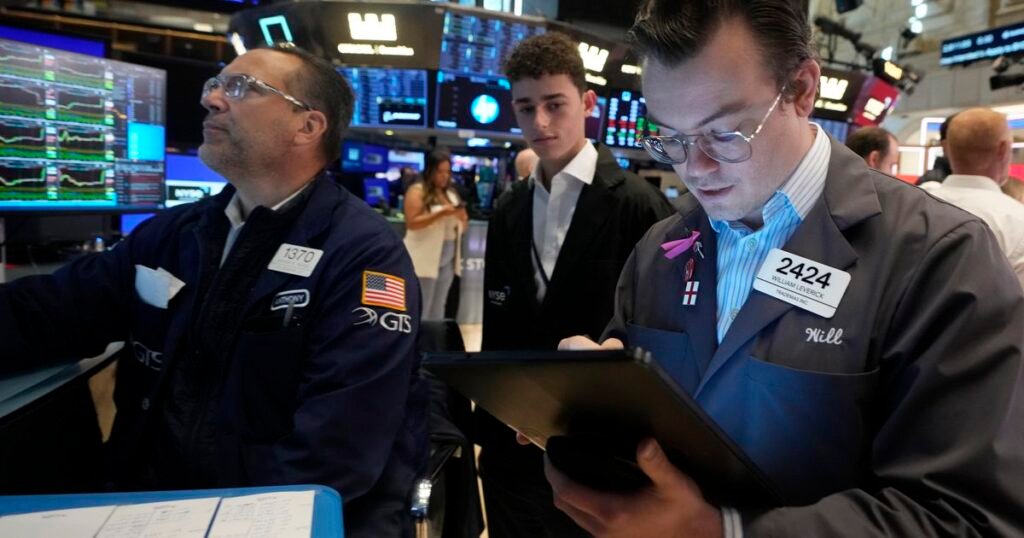Following Autodesk, chipmaker Broadcom Inc., whose shares rose 5.4%, built on last week’s gains after it reported better-than-expected profits and said it would do a 10-for-1 stock split to make its shares more affordable. Broadcom follows Nvidia Inc., which has become a symbol of Wall Street’s artificial intelligence technology frenzy, in doing so recently.
Broadcom was one of the strongest drivers of the S&P 500’s gains, along with Apple’s 2% gain and Microsoft’s 1.2% gain.
Continued momentum in big tech stocks and easing inflationary pressures have investors “welcoming the prospect of ‘things being half full,'” rather than focusing on the plight of low- and middle-income Americans and other challenges, said Anthony Sagrimbene, chief market strategist at Ameriprise.
Supermicro, which sells servers and storage systems used in artificial intelligence and other computing, jumped 5.1%, bringing its gains so far this year to a staggering 212.2%. The company is also part of an AI-related supernova that is dwarfing nearly everything else on Wall Street.
Gains in technology stocks helped offset pressure on stocks from rising Treasury yields in the bond market, which took some of the slack created last week when a better-than-expected report on inflation raised expectations the Federal Reserve would cut interest rates this year.
There are few major U.S. economic reports this week, other than an update on customer spending at U.S. retail stores on Tuesday and a preliminary outlook for U.S. business activity on Friday. Markets are closed on Wednesday for Juneteenth Day.
New York state manufacturing is still shrinking, but not by as much as economists expected, according to a report Monday. Manufacturing has been one of the sectors hardest hit by the Federal Reserve’s eagerness to keep its key interest rates at their highest levels in more than two decades.
The Fed wants to keep interest rates high long enough to slow the economy and tame high inflation, but it also wants to cut rates to reverse momentum before the slowdown turns into a painful recession.
High interest rates hurt all kinds of investments, but they tend to hit some sectors especially hard. Utilities fell 1.1% on Monday, the biggest drop among the 11 sectors that make up the S&P 500 index. Utilities are often hit when higher bond yields scare away income-seeking investors who would otherwise be drawn to dividend-paying utility stocks.
GameStop Corp. was also a laggard, falling 12.1% after its annual meeting. The company’s shares have been tumbling up and down on waves of enthusiasm from small investors. At the meeting, Chief Executive Ryan Cohen said the struggling video game retailer would focus on cutting costs, which could include “reducing our store network.”
Overall, the S&P 500 rose 41.63 points to 5,473.23, the Dow added 188.94 points to 38,778.10 and the Nasdaq Composite added 168.14 points to 17,857.02.
In the bond market, the yield on the 10-year Treasury note rose to 4.28% from Friday’s close of 4.22%. The yield on the two-year note, which more accurately reflects the Fed’s expectations, rose to 4.76% from 4.71%.
Abroad, European stock indexes settled somewhat after last week’s sell-off. France’s CAC 40 index rose 0.9 percent after its worst week in two years on concerns that a potential loss of power for the president’s centrist party would lead to a surge in the country’s debt.
European shares rose slightly while Asian shares fell. Japan’s Nikkei index fell 1.8%.
___
AP Business Writer Elaine Kurtenbach contributed.

